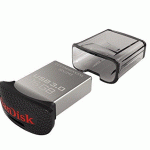FreeNAS is a FreeBSD based storage platform that utilizes ZFS. The fact that it uses a thoroughly enterprise file system and it is free means that it is extremely popular among IT professionals who are on constrained budgets. At STH we test hundreds of hardware combinations each year. From this experience, we are going to keep a running log of the best FreeNAS drives. We are going to focus this guide on FreeNAS servers with under 30 storage devices and will periodically update the listing.
Like most ZFS systems, the real speed comes from caching. ZFS is designed to make effective use of RAM and solid-state drives for caching. FreeNAS has a small OS footprint and does not need much performance from the boot device. At STH we recommend mirrored FreeNAS boot devices to save time should one fail. Here our are our top picks for FreeNAS boot drives.
As a quick note, we are going to be updating this for TrueNAS Core in the near future.
STH FreeNAS Boot Drive Picks
We highly recommend solid-state boot devices. They are lower power than hard drives and generally more reliable. FreeNAS installations are not large so an 8GB flash drive will likely do the trick. With current pricing, we have a few recommended options that work well.

- SATADOM: These use “gold” stat ports on your motherboard and newer revisions do not require an extra power cable. These are our preferred option today. These vary in size and cost but popular vendors are Supermicro and Innodisk. You can read our Innodisk SATADOM-SL 3ME3 V2 32GB Benchmarks and Review to see an example of how this works.
- M.2 SATA SSD: WD Blue 500GB (Under $70 on Amazon) – note here you can get the 250GB or less and be fine, but it is usually 15-20% more to get twice the capacity.
- Boot SSD Option 2: Intel 320 40GB or 80GB ($20 to $40 on ebay)
- Boot SSD Option 3: Intel 710 100GB ($50 to $60 on ebay)
- Boot SSD Option 4: Intel S3500 80GB – 120GB ($35 to 55 on ebay)
- Inexpensive USB Drive: SanDisk Ultra Fit 32GB ($10 on Amazon) – We are generally advising to skip USB these days unless it is the only option.
At STH, our perspective is that you should mirror your boot drives. If you go the USB drive route, buy an extra 1-2 drives at the same time. Since 32GB drives are all of $10, we would not recommend anything smaller. You will want drives that are the same capacity and for the $10 part in a $2000+ server, it pays to have spares just in case a vendor changes capacities slightly over a production run. The SanDisk Ultra Fit series are popular drives for server applications because of its low profile design. That design element allows it to be deployed both in rear I/O plates as well as internal USB type-A headers.
If you want something more reliable the Intel 320 and 710 series SSDs were rock solid SATA II drives for older generation servers. This means they work perfectly well, at full speed, even on legacy SATA II/ SAS 1 ports such as those found on Intel Atom C2000, Intel Xeon E3 (V1 – V4) or Intel Xeon E5 (V1/ V2) platforms. With a bit of searching the 40GB drives can be purchased for $20 (Intel 320 40GB.) That is only about twice what a 32GB USB drive would cost. You do not need fast, just reliable and the 320 series and 710 series are go-to options older generation drive. Using a SATA SSD over a USB does mean higher power consumption and an extra controller port/ drive bay used. Those are the trade-offs for reliability.
With M.2 SATA ports being popular, we have been using the WD Blue 500GB SSDs with great success. You can get smaller drives, but we get 500GB because it is generally only a few dollars more than the 250GB designs. For FreeNAS, these drives have worked well for the STH team.
On NVMe boot SSDs, the Toshiba BG4 will be a great solution in the future as a 2230 M.2 NVMe SSD, but FreeNAS does not require high capacity or high speeds. Save your NVMe slots for L2ARC and ZIL.
Final Words
Expect to spend $40-$110 all-in for a great mirrored FreeNAS boot drive setup. For some reference, the FreeNAS Mini XL+ we reviewed has a 16GB SATADOM so you do not need enormous capacity.
You can see more of our FreeNAS Buyer’s Guides here.
Last updated 2019/07/30
